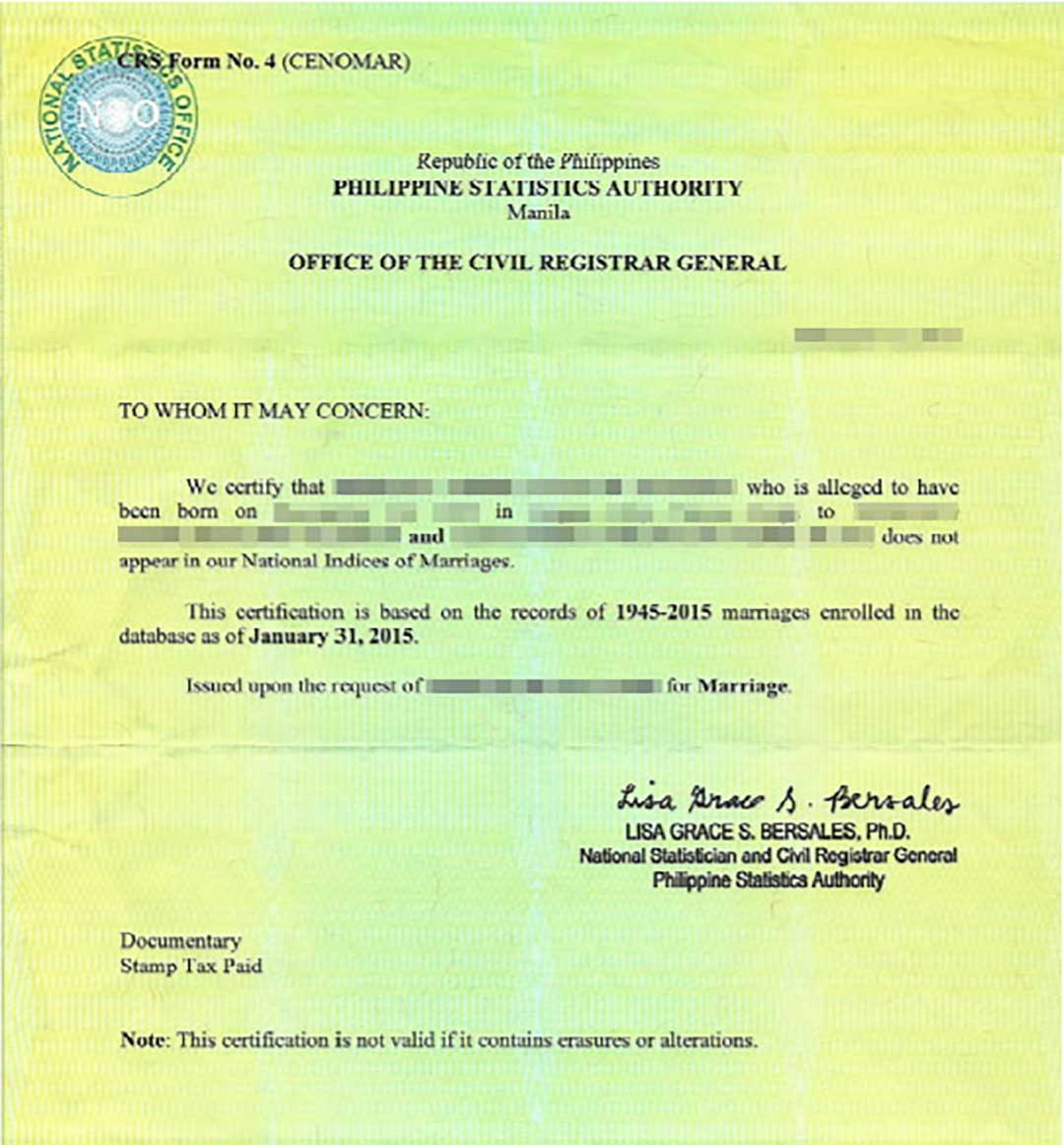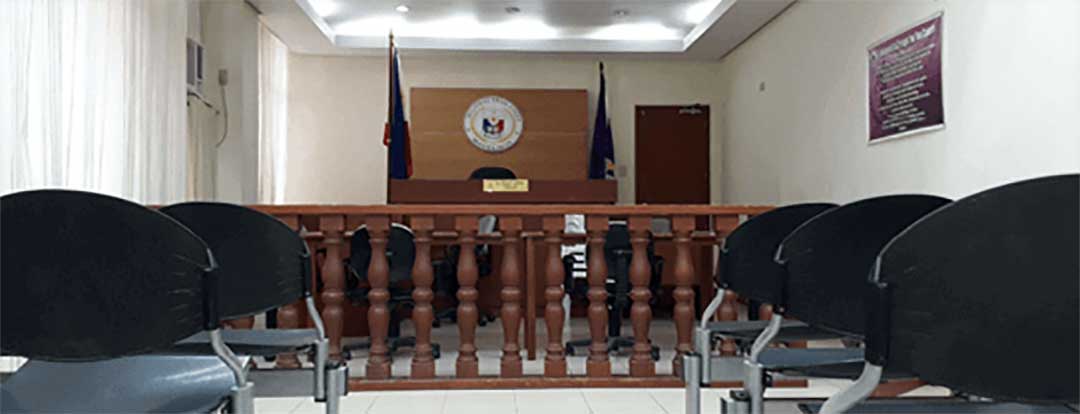Recognition of Foreign Divorce in the Philippines (Process)

Recognition of Foreign Divorce in the Philippines is possible
Recognition of Foreign Divorce Decree in the Philippines requires a court case to recognize a valid foreign divorce between a Filipino and a foreigner. It allows you to correct your Philippine marriage record to reflect the divorce.
There are a number of myths about Foreign Divorce in the Philippines. My article Recognition of Foreign Divorce Myths covers nine of them. It is worth reading especially if you have heard different things from different people on the subject.
Recognizing the Divorce Decree in the Philippines is possible regardless of whether the divorce was obtained by the Filipino or by the foreigner.
The requirement for Recognition of Foreign Divorce is just that at least one of the Spouses was a non-Filipino at the time of the divorce.
This follows from the second paragraph of Article 26 of the Family Code of the Philippines:
“Where a marriage between a Filipino citizen and a foreigner is validly celebrated and a divorce is thereafter validly obtained abroad by the alien Spouse capacitating him or her to remarry, the Filipino Spouse shall have capacity to remarry under Philippine law.”
If you need to discuss a Recognition of Foreign Divorce in the Philippines case or issue contact us here
Contents
- 1. Why do I need to have my Foreign Divorce Recognized in the Philippines?
- 2. How do I file for Recognition of Foreign Divorce in the Philippines?
- 3. What documents should I prepare for a Recognition of Foreign Divorce Petition?
- 4. Where do I file my Petition for Divorce Recognition in the Philippines?
- 5. What is the court process for Recognition of Foreign Divorce?
- 6. Can I file for Recognition of Foreign Divorce while I am abroad?
- 7. How long does a Recognition of Foreign Divorce case take?
- 8. How much does Recognition of Foreign Divorce in the Philippines cost?
1. Why do I need to have my Foreign Divorce Recognized in the Philippines?
There are a number of reasons why filing a recognition of divorce case in the Philippines is important.
First, this allows you to correct your Philippine Marriage Certificate so that Conjugal Property Rights are given to the correct Spouse.
You will also be able to correct your last name in your Philippine passport.
And Philippine banks can issue loans to you without worrying about interference from the ex-spouse.
It is also specially important when you marry another Filipino or if you decide to live or retire in the Philippines. Without the case, there will be confusion as to which spouse should be given rights to conjugal property.
Lastly, recognizing the foreign decree of divorce may be needed to get a Certificate of No Marriage (CENOMAR) so that you can remarry in the Philippines. Without the case, you will still be considered married here.
Local Civil Registrars will only issue a marriage license when a CENOMAR can be obtained.
To check your Marriage Record, you can make a request with the Philippine Statistics Office for an Advisory on Marriage or a CENOMAR.

Philippine Certificate of No Marriage (CENOMAR)
With your CENOMAR in hand, think about your situation.
Do you have property or assets in the Philippines?
Do you plan to live/retire in the Philippines or are remarrying another Filipino?
If so, Recognition of Foreign Divorce will help avoid legal issues concerning Properties, Legitimacy, Inheritance, Spousal Support and Marital Rights down the line.
2. How do I file for Recognition of Foreign Divorce in the Philippines?
Let’s next look at how to file for a Recognition of Foreign Divorce.
A petition for recognition of foreign divorce can only be filed through a Philippine court case at the correct Philippine Regional Trial Court.
It cannot be accomplished any other way.
People inquiring how to file for a Recognition of Foreign Divorce have asked if it can be done by simply presenting the foreign Divorce Decree at a Philippine Embassy.
Or if going to the Philippine Statistics Authority would suffice.
Neither will work.
A divorce internationally obtained can only be recognized through a court case where both the Foreign Divorce and the Foreign Divorce law need to be proven in Court.
The first step will be to contact a lawyer.
You will need to get a lawyer to prepare and conduct the case.

It is important to be honest when you talk to your lawyer and provide all the facts about your foreign divorce
You should disclose everything to your lawyer.
Give him honest and complete details about your ex-spouse, your citizenships, your marriage and your divorce.
Do not edit the facts or be afraid to tell him everything. He needs to know these facts in order to do a good job. He will keep it confidential because a lawyer is bound by his Code of Ethics.
He will need to know the specific places and dates of events.
He will also need clear, accurate copies of your documents so that he can assess them.
He will need this initial information and documents to assess the case properly.
3. What documents should I prepare for a Recognition of Foreign Divorce Petition?
Many of the requirements for a Recognition of Foreign Divorce Petition are documents that need to be submitted.
Certainly the primary document requirements are your Marriage and Divorce Certificates and proof of citizenship to file your Recognition of Foreign Divorce case.
I have put together an initial list of document requirements for Recognition of Foreign Divorce here:
- Philippine Marriage Certificate/Record if the marriage was in the Philippines
- Official Marriage Certificate/Record from the foreign country if the marriage was abroad
- Report of Marriage of a Filipino Married Abroad (if one was filed with the Department of Foreign Affairs)
- Official copies of your Foreign Divorce documents
- Certified Copy of the foreign country’s Divorce Law
- Proof of citizenship
This is a general list.
Depending on the particular foreign country involved and depending on the particular case, other documents may be necessary.
This is because different countries have different divorce processes and different kinds of marriage and divorce documents. In fact, recognition of foreign divorce in private international law is sometimes discussed due to the conflicts that can arise when different laws contradict the other. This seldom occurs in regular cases however, so recognizing most foreign divorce decrees should be relatively straightforward.)
Your lawyer will be able to determine the full list after assessing the case facts and documents. You lawyer will also advise you of any other necessary requirements for Recognition of Foreign Divorce in the Philippines based on where your marriage and divorce took place.

Getting your documents ready is an important first step to file for Recognition of Foreign Divorce in the Philippines.
Your documents will be presented to the Regional Trial Court with the Petition.
The petition will list the facts of the case, relevant recognition of foreign divorce jurisprudence, landmark cases on foreign divorce decrees, as well as a documentary evidence.
For the Regional Trial Court to accept these documents as evidence, it needs to be assured that they are genuine. This is another of the requirements for filing a petition of recognition for foreign divorce.
Any Philippine documents you attach to your Petition need to have been officially certified by the correct government office. This may be the Civil Registrar, Philippines Statistics Authority, Department of Foreign Affairs etc.
Any foreign documents attached to your Petition will need to be certified by the correct Foreign Office. They will also need to be Apostilled by the competent authority or authenticated there by the Philippine Embassy in the foreign country. You can read more about the Apostille process in Apostille of Documents From and For the Philippines
If a foreign document is not in English, then its certified English translation is also needed and this should also be authenticated.
Your lawyer should advise you of all requirements for a Recognition of Foreign Divorce Petition, what needs to be authenticated in the Philippines and what needs to be Apostilled in the country where the divorce was obtained.
4. Where do I file my Petition for Divorce Recognition in the Philippines?
The Petition will be filed with the correct Regional Trial Court in the Philippines.
The correct Regional Trial Court is determine by Philippine Rules of Procedure and you must file at the correct venue so that the Court Decision can be affected.
To file, the lawyer must prepare a Petition for Recognition of Foreign Divorce signed by the lawyer and sworn to by you (the Petitioner). The Petition will contain copies of all the relevant documents and must also be accompanied by the Judicial Affidavit of the proposed witnesses.
The case will then be raffled to a specific branch of the Regional Trial Court’s in that city or province.

Yes, testimony will be needed
5. What is the court process for Recognition of Foreign Divorce?
The Regional Trial Court branch that gets the case will check whether the Petitioner or her lawyer have any family relation to the Court’s personnel, and take measures to preserve impartiality.
Then the Regional Trial Court will order that the substance of the Petition be published in a random newspaper once a week for 3 weeks.
The case will be calendared for first Hearing and Notices of this will be served to the Philippine government offices concerned, to the last known address of the ex-spouse, and to any other required parties.

The date and time of Hearing will be published in a newspaper chosen by the court.
Proof that these Notices were served needs to be shown on the first Hearing date. After that, the lawyer will have the documents of the case marked into the Record of the Court.
As you can see, this is a court process with extensive Pre-Hearing requirements.
The Trial itself requires the presentation of Witnesses and other evidence as well as written Memoranda, before the Court makes a ruling.
The Testimony of a Witness will be through a Judicial Affidavit. A Judicial Affidavit is used to speed up the Trial.
In a Judicial Affidavit, the lawyer’s questions and the answers of the Witness are set into writing and Notarized before the Hearing. During court, a Witness will simply identify and affirm this Judicial Affidavit in Court to complete her direct Testimony.

A judicial affidavit helps ensure the entire story is told.
The Witness can then be cross-examined by the government lawyer to verify her statements.
On cross-examination, she will be asked follow up questions about her marriage and divorce.
Because of the COVID pandemic and the changes in court procedure instituted by the Supreme Court, Witness Testimony can often be via video conference.
This means that a Witness may not need to come to the Philippines to Testify if the Judge so allows and the Philippine Embassy where you live offers court Testimony via videoconference. This may depend on the Judge’s discretion.
After all the evidence is submitted, the lawyer will submit to the Regional Trial Court a legal document known as a Formal Offer of Evidence.
If there is no active opposition by other parties, the Petitioner will then await the Court’s Decision. The waiting after these submissions will probably take a few months because of the clogged court dockets.
Assuming it is favorable, the Decision can thereafter be registered with the Civil Registrar and the Philippine Statistics Authority for Annotation on the Marriage Record.
6. Can I file for Recognition of Foreign Divorce while I am abroad?
Yes.
That the Petitioner is abroad while the case is being prepared can actually be beneficial.
If documents need to be secured or translated in the foreign country, it is then often easiest for the Petitioner to get them there herself.
For example, we recently had to file several petitions for divorces in Kuwait for Filipinos who were working abroad. We gave them the list of documents needed from Kuwait which they were able to get as they were still abroad. Otherwise, they would have had to pay or ask a friend to do it.
Much of the remaining preparation can be done in remote coordination with your lawyer over the internet.

You can undertake a Recognition of Foreign Divorce petition even while abroad.
In the past, the Petitioner would ideally come to the Philippines to Testify.
But ever since the Supreme Court has allowed video conference Testimony due to the global COVID pandemic, the Petitioner need not even be in the country to file a Petition under certain conditions.
If it is not possible for Petitioner to testify, the Judge may accept an appointed personal representative to appear on her behalf. The advisability of doing this will depend on how well and completely the documents presented can prove the facts of the case.
Note however, that videoconferencing is highly dependent on the judge. Some judges insist that you are present physically. Thus, videoconferencing cannot be guaranteed.
7. How long does a Recognition of Foreign Divorce case take?
Recognizing the divorce from a foreign spouse can take about a year and a half to finish from date of filing. This is because there is a trial, unlike most divorces
This can vary depending on the situation.
Apart from the Notice Requirements (Service of Summons and Publication), the reason it can take so long is because of the heavy backlog of court cases. Philippine courts tend to handle many, many cases at any given time.
Even though only a few Hearing dates are needed to recognize a divorce decree in the Philippines, these are sometimes scheduled months apart because the calendars of the courts are so crowded.

The court case can finish in about a year and a half, depending on the circumstances.
Also, sometimes side issues come up which need to be resolved so that the case can move forward.
While lawyers can ask to be accommodated by the Court with closer Hearing dates, sometimes this is out of their hands.
What lawyers can assure is the quality of their work and their diligence in order to prevent avoidable delays.
That is why it is important to make the most of every Hearing date. By doing so, it may be possible to finish the case in a shorter period of time.
8. How much does Recognition of Foreign Divorce in the Philippines cost?
We are always asked, “Magkano ang divorce sa Pilipinas?” The cost for recognizing the foreign divorce decree in the Philippines can vary.
There are the minimal fees to be paid to government offices for the Certified Copies of documents.
Then there are the fees charged by the Department of Foreign Affairs or Philippine Embassy for authenticating public documents.
When the Petition is filed, there is an initial Filing Fee collected by the Court.
There is also a requirement for the publication of the Petition in a small newspaper chosen by the Court.

There are court, document, publishing and lawyer’s fees to consider for a Recognition of Foreign Divorce cost.
There are other expenses associated with the court proceedings, such as for the court transcripts, photocopying, postage, and messengerial expenses.
A lawyer’s professional fees are dependent on several factors, among them the difficulty of a particular case, the logistics involved, how much further investigation and liaising with government offices are needed, and other specific circumstances.
Professional fees are divided into the lawyer’s acceptance fee for the case, by which he commits his time to study and analyze the facts, commits to represent the client, and to prepare the Petition for Recognition, the subsequent fees for the other written pleadings he must submit to the Court, and court appearance fees for each hearing.
These fees are agreed on during the early consultations with the lawyer, after the circumstances of the case are better known.
You can also read my FAQ Guide on the Recognition of Foreign Divorce and related reading on Foreign Divorce and a Former Filipino Citizen.
Atty. Francesco C. Britanico, FCB Law Office
Lawyers In the Philippines






701 Comments